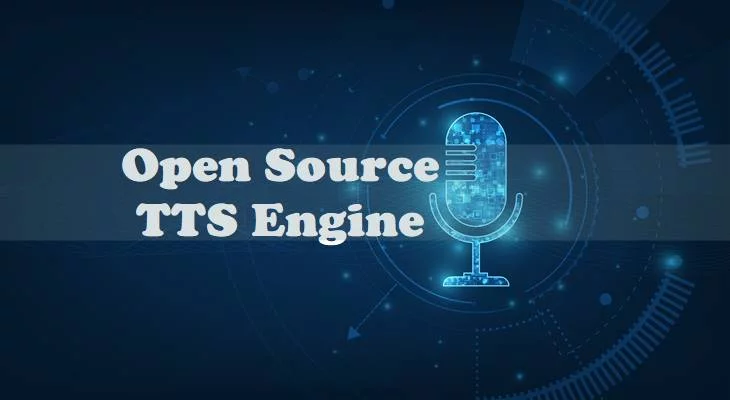The Text-to-Speech Engine technology (more commonly known as TTS) is used to create a voice version of the text document.
The rise in the use of digital devices, and the growing dependence upon voice recognition and similar technologies, TTS is gaining prominence.
But, the applications of the technology don’t just stop there. With the help of this technology, you can convert the text emails into voice recordings. It can also help the visually challenged people to understand text content.
We will be looking at some of the best open source TTS engine tools through this blog. This will help us understand their features and benefits more clearly.
Top Open Source TTS Tools
MARY Text-to-Speech is a multilingual TTS synthesis platform that supports English (British and American), French, German, Italian, Russian, and many other languages.
Features:
- Uses preprocessing techniques like tokenizer and numerical expansion.
- It uses multi-threaded network architecture processes multiple requests in parallel.
- It is flexible in nature so that you can use both pure Java models and external models.
- It uses XML structures to improve transparency and is easy to understand for common users.
eSpeak is a compact open-source text to speech engine that is available for both Windows and Linux. It supports English and many other languages. Let us take a quick look at some of its key features:
Features:
- This platform can easily do the text to phoneme translations. This helps the system to understand the meaning of the text and helps it to translate and pick up the pronunciations accordingly.
- It comes with two synthesizers :
- eSpeakinG synthesizer, which converts vowels and sonorant consonants to complete the sound with sound addition technology.
- Klatt synthesizer uses a similar technique but with subtractive synthesis. It uses digital filters to understand the difference between consonants, vowels, and sonorants.
- This tool was used by Google Translate in 2010 because of its differentiation technology and speed to convert the text into voice.
- The sound quality of voices is clear and soothing to ears.
It is a lightning-fast, open-source TTS engine and its core features include:
Features:
- As it is based on FLITE technology, you can customize how the voice sounds.
- It is a small latency platform and uses a limited resource footprint.
- It works seamlessly on Linux, Android, and Windows.
- Currently, this tool is working on bringing realistic voices to people with speech disorders.
Also Read: Everything You Need to Know About Google Duplex
Festival Lite is more commonly known as Flite. It is a small, run time engine that is considered to be one of the fastest TTS engines.
As it is an open-source engine, it is free, and you can do many customizations. Hence many of the companies are opting for this TTS engine. Let us look at some of its core features:
- It can be used for both small and large files.
- It is thread-safe, and its latest version provides a hassle-free TTS conversion.
- It is compatible with Windows, Linux, and Android.
- It is also available in multiple languages.
MBROLA stands for Multi-Band Resynthesis OverLap Add. MBROLA is also one of the prominently used open-source TTS engines. And it provides support for many of the spoken languages. Let’s take a quick look at some of its key features:
- It provides a multilingual database.
- It is useful for in-house text to speech conversions.
- It was a non-commercial software earlier but is now launched as an open-source TTS engine.
- It provides pleasant sound quality with consistency and accuracy in voice pitch.
YakiToMe allows you to convert text files into voice files easily. You can download the voice files into MP3 audio files. Let us understand the salient features of it.
- The engine not only supports .doc, txt, and .pdf files, but it also supports.HTML, RSS, and email files.
- You can download the portable files and save them on your desktop, tablets, and smartphones.
- It also provides a social platform from which you can search subscribe to files created by other users.
- It offers support in English, French, and Spanish.
- It provides voice, speech speed, and pronunciation controls.
Key Takeaways:
With the above-mentioned tools, we can understand that open source tts engines can be used widely to convert text from different languages. We can also use these engines to create social platforms, in-house utilities, and much more.





